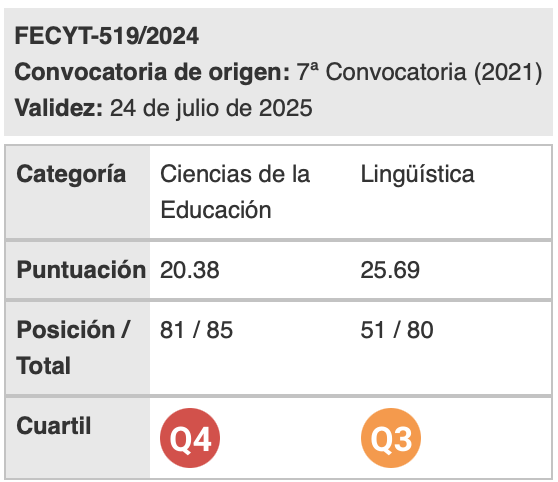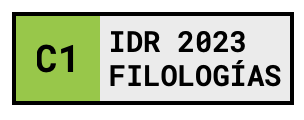Teaching and learning ESP vocabulary
Keywords:
English language learning and teaching, vocabulary learning, vocabulary teach- ing, vocabulary learning strategies, ESPAbstract
Vocabulary learning and teaching is very important in learning English; nevertheless, vocabulary was a neglected area in foreign language teaching for a number of years. In order to develop students’ communicative competence, language teachers should encourage them to learn as many words as possible. English for specific purposes course (ESP) are new trend in English Language Teaching and they include technical English, scientific English, English for medical professionals, English for waiters, and English for tourism. There are different opinions about teaching ESP courses but vocabulary is crucial in this sphere of teaching. Therefore, this paper attempts to add to existing studies on the use of vocabulary learning strategies in learning vocabulary in ESP. The students should become aware of the importance of language learning strategies and get trained to use them appropriately.
Downloads
References
Driscol, P. M. (2005). Psychology of learning for instruction. Third Edition. USA:
Pearson Education, Inc.
Dudley-Evans, T., & St John, M. (1998). Developments in English for Specific Purposes. UK: Cambridge University Press.
Hutchinson, T., & Waters, A. (1999). How communicative is ESP?, in ELT Journal, 38(2), 108-113.
Kavaliauskienë, G., & Janulevièienë, V. (2000). Using the lexical approach for the Acquisition of ESP vocabulary. To translate or not to translate in teaching ESP? ‘Network’, A Journal for English Language Teacher Education, 3(3), Oct. http://iteslj.org/Articles/Kavaliauskiene-LA.html (accessed 16 July 2007).
Lewis, M. (1993). The lexical approach: The state of ELT and the way forward. Hove, England: Language Teaching Publications.
McCarthy, M. (1990). Vocabulary. Oxford: Oxford University Press.
Morgan, J., & Rinvolucri, M. (2004). Vocabulary. 2nd Edition. Oxford: Oxford
University Press, 2004.
Nation, I.S.P. (2001). Learning vocabulary in another language. Cambridge: Cambridge University Press.
Newton, J., & Nation, I.S.P. (1997). Vocabulary and teaching. In J. Coady & T. Huckin (Eds.), Second language vocabulary acquisition (238-254). Cambridge: Cambridge University Press.
O’Malley, J. M., & Chamot, A.U. (1990). Learning strategies in second language acquisition. UK: Cambridge University Press.
Schmitt, N. (1997). Vocabulary learning strategies. In R. Carter & M. McCarthy (Eds.), Vocabulary and language teaching (pp. 198–218). New York: Longman.
Schmitt, N. (2000). Vocabulary in language teaching. Cambridge: Cambridge University Press.
Sysoyev, P. V. (2000). Developing an English for Specific Purposes course using a learner centered approach: A Russian experience. The Internet TESL Journal, VI. Retrieved from the web on November 9, 2007: http://iteslj.org/Techniques/ Sysoyev-ESP.html.
Sökmen, A. (1997). Current trends in teaching second language vocabulary. In N. Schmitt & M. McCarthy (Eds.), Vocabulary: Description, acquisition and pedagogy (pp. 237-257). Cambridge: Cambridge University Press.
Wallace, M. (1982). Teaching vocabulary. London: Heinemann Educational Books.
Downloads
Published
How to Cite
Issue
Section
License
Authors who publish with this journal agree to the following terms:
- Authors retain copyright and grant the journal right of first publication with the work simultaneously licensed under a Creative Commons Attribution License that allows others to share the work with an acknowledgement of the work's authorship and initial publication in this journal.
- Authors are able to enter into separate, additional contractual arrangements for the non-exclusive distribution of the journal's published version of the work (e.g., post it to an institutional repository or publish it in a book), with an acknowledgement of its initial publication in this journal.
- Authors are permitted and encouraged to post their work online (e.g., in institutional repositories or on their website) prior to and during the submission process, as it can lead to productive exchanges, as well as earlier and greater citation of published work (See The Effect of Open Access).

Revista de Lenguas para fines específicos is licensed under a Creative Commons Reconocimiento-NoComercial-SinObraDerivada 4.0 Internacional License.
























